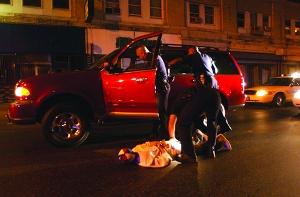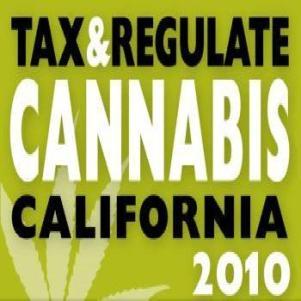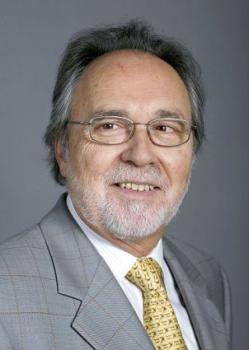Tax and Regulate
Cannabis Should Be Licensed and Sold in Shops, Expert Says:
Despite Decrim, California Marijuana Possession Busts Abound [FEATURE]
Marc Emery Prosecutor Now Says Legalize Marijuana
California Marijuana Initiative Lead Narrows, Poll Finds
Marijuana Initiative Challenges Costly, Bloody Drug War (Opinion)
Swiss Pol Who Probed Secret CIA Prison System Says Legalize Drugs
CA Marijuana Init Worth Hundreds of Millions Yearly, State Analysts Say
NEW LOCATION: Reformers to Call for New Approach TODAY at Marijuana Eradication Conference

FOR IMMEDIATE RELEASEÂ Â Â Â Â Â Â Â Â Â Â Â Â Â Â Â Â Â Â Â Â Â Â Â Â Â Â Â Â Â Â Â Â Â Â Â Â Â Â Â Â Â Â Â Â Â Â Â Â Â Â Â Â Â Â Â Â Â Â Â Â Â Â Â Â Â Â Â Â Â Â Â Â Â Â Â Â Â Â Â Â Â Â Â Â Â Â Â Â Â Â Â Â Â Â Â Â Â Â Â Â Â Â Â Â Â Â Â Â Â Â Â Â Â Â Â Â Â Â Â Â Â Â Â Â Â Â Â Â
MAY 10, 2010
Reformers to Call for New Approach TODAY at Marijuana Eradication Conference
Location Changed for Todayâs Press Conference; Former Law Enforcement, Clergy Members, Other Advocates Will Call for End to Wasteful, Ineffective Eradication Campaigns
CONTACT: Aaron Smith, MPP California policy director â¦â¦â¦â¦â¦ [email protected] or 707-291-0076
SAN DIEGO, CALIFORNIA â At a press conference today, reform-minded advocates will make the case for ending the Campaign Against Marijuana Planting (CAMP), which, since 1983, has inarguably failed to achieve its stated goal: reducing marijuana use and availability by eradicating illegal grow sites.
           Today through Wednesday, local, state, and federal law enforcement officers will gather at the U.S. Grant Hotel in San Diego to begin organizing this yearâs eradication campaign, the wisdom of which has been increasingly called into question as Californians prepare to vote on a November ballot initiative that would end the stateâs prohibition on adult marijuana use.
        âItâs time to stop this insanity of repeating the futile exercise of CAMP and instead replace marijuana prohibition with a system of taxation and regulation,â said Aaron Smith, California policy director for MPP, who is leading Mondayâs press conference.
        Todayâs press conference was originally planned to be held in the same hotel as the CAMP conference, but organizers were informed at the last minute and without explanation that they would not be able to hold the event in the same hotel.Â
        NEW LOCATION: Westin Gas Lamp Quarter Hotel, Coronado Room, (3rd floor), 910 Broadway Circle, San Diego, CA 92101
        WHAT: Press conference to call for an effective marijuana policy and an end to eradication campaigns
        WHEN: Monday, May 10, at 11:00 a.m.
        WHO: Speakers who will question the wisdom behind CAMP will include:
Leo Laurence, a retired deputy sheriff and former legal researcher for the San Diego County District Attorneyâs office, now a speaker for Law Enforcement Against Prohibition.
The Rev. Canon Mary Moreno-Richardson, an Episcopal priest and coordinator for Hispanic Ministries at St. Paulâs Cathedral in San Diego, who has worked extensively to prevent violence in the community and help at risk youth.
        With more than 124,000 members and supporters nationwide, the Marijuana Policy Project is the largest marijuana policy reform organization in the United States. MPP believes that the best way to minimize the harm associated with marijuana is to regulate marijuana in a manner similar to alcohol. For more information, please visit www.mpp.org.
####
Press Release: Reformers to Call for New Approach at Annual Marijuana Eradication Conference Monday

FOR IMMEDIATE RELEASEÂ Â Â Â Â Â Â Â Â Â Â Â Â Â Â Â Â Â Â Â Â Â Â Â Â Â Â Â Â Â Â Â Â Â Â Â Â Â Â Â Â Â Â Â Â Â Â Â Â Â Â Â Â Â Â Â Â Â Â Â Â Â Â Â Â Â Â Â Â Â Â Â Â Â Â Â Â Â Â Â Â Â Â Â Â Â Â Â Â Â Â Â Â Â Â Â Â Â Â Â Â Â Â Â Â Â Â Â Â Â Â Â Â Â Â Â Â Â Â Â Â Â Â Â Â Â Â Â Â
MAY 7, 2010
Reformers to Call for New Approach at Annual Marijuana Eradication Conference Monday
At Monday Press Conference, Former Law Enforcement Officers, Clergy Members, and Other Advocates Will Call for an End to Ineffective, Wasteful Eradication Campaigns
CONTACT: Aaron Smith, MPP California policy director â¦â¦â¦â¦â¦ [email protected] or 707-291-0076
SAN DIEGO, CALIFORNIA â From May 10 to May 13, local, state, and federal law enforcement officers will gather at the U.S. Grant Hotel in San Diego to begin organizing this yearâs Campaign Against Marijuana Planting (CAMP), which, since 1983, has inarguably failed to achieve its stated goal: reducing marijuana use and availability by eradicating illegal grow sites. On Monday, at a press conference at the same hotel, advocates will call on officials to end this wasteful policy, the wisdom of which is being increasingly called into question as Californians prepare to vote on a November ballot initiative that would end the stateâs prohibition on adult marijuana use.
        âThese so-called âeradicationâ efforts have had zero effect on marijuana use, availability, or price, but once again, California law enforcement agencies are perfectly content to throw more tax money down the CAMP rabbit hole. Itâs time to stop this insanity of repeating the futile exercise of CAMP and instead replace marijuana prohibition with a system of taxation and regulation,â said Aaron Smith, California policy director for MPP, who is leading Mondayâs press conference. âOnly then will we be able to eliminate the clandestine marijuana plantations â just as the repeal of alcohol prohibition did away with the bootleggers of that era. Itâs no coincidence that drug cartels donât plant vineyards or hops fields in our national forests.â
        WHAT: Press conference to call for an effective marijuana policy and an end to an eradication campaigns
        WHEN: Monday, May 10, at 11:00 a.m.
        WHERE: U.S. Grant Hotel, Sycuan Parlor, 326 Broadway, San Diego, CA 92101
        WHO: Speakers who will question the wisdom behind CAMP will include:
Leo Laurence, a retired deputy sheriff and former legal researcher for the San Diego County District Attorneyâs office, now a speaker for Law Enforcement Against Prohibition.
The Rev. Canon Mary Moreno-Richardson, an Episcopal priest and coordinator for Hispanic Ministries at St. Paulâs Cathedral in San Diego, who has worked extensively to prevent violence in the community and help at risk youth.
        With more than 124,000 members and supporters nationwide, the Marijuana Policy Project is the largest marijuana policy reform organization in the United States. MPP believes that the best way to minimize the harm associated with marijuana is to regulate marijuana in a manner similar to alcohol. For more information, please visit www.mpp.org.
####
Pagination
- First page
- Previous page
- …
- 10
- 11
- 12
- 13
- 14
- …
- Next page
- Last page




